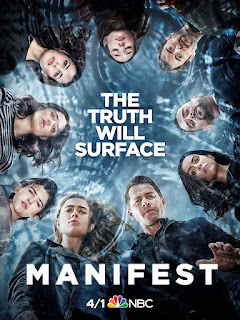Political tribalism is the foremost reason why millions of Evangelical Republicans are avoiding or refusing the COVID-19 vaccine, given our hyper-partisan cultural moment, it isn't hard to see why. However, this particular manifestation of an anti-science attitude was made possible because for generations many of America's Evangelicals have been taught that the vast majority of the world's scientists, including medical doctors, geologists, astronomers, biologists, chemists, archaelogists, sociologists, and more are involved (whether or not they are aware of it) in a global Satan inspired (and/or led) conspiracy to hide the truth about the how and when of Creation. It is assumed, and often boldly stated, that most scientists are atheists who hate God. These scientists, as the conspiracy theory goes, falsify data, publish things they know to be lies, and seek to destroy the courageous few that try to get the truth out to the public. I've heard this tale, many times, from many people, since my childhood.
There was no need to offer proof that Science was so corrupted, this was a theological conclusion, not one built upon indepentent facts. This global cabal of Satan aiding scientists believe that the universe is old, far older than 6,000 years, and that life as we know it is the result of evolutionary processes. In opposition, Young Earth Creationists, led by Ken Ham and Answers in Genesis, offer a starkly different viewpoint, one framed not primarily as a scientific debate (although they do offer a vast array of explanations and attemtped rebutals) but as a spiritual battle between the forces of Good and the forces of Evil. Wether stated explicitly or not, there is a very strong implicit understanding that Science, and the vast majority of scientists, are evil.
If you begin with the premise that the vast majority of scientists are either evil, or beholden to evil, it won't be long before that attitude bleads out into other realms and has real world consequences. In other words, Pandora doesn't stay in the box arguing about Creation, it spills out.
Previously to COVID-19, one of the most visible areas where, "they're all lying to you" anti-science beliefs came to the forefront was in denial of human caused Climate Change. For example: The Globe Is Warming, But It’s Not Your Fault! by Dr. Alan White or Climate Change Hysteria—Is It Justified? by Ken Ham among many others from Answers in Genesis.
Regarding COVID-19, like Climate Change in years previously, politicians are not causing an anti-science attitude (to make one from scratch would be no small task), they're merely riding the wave of one that has been building since the Scopes Trial in 1925.
In the end, many American Christians, particularly Evangelicals, have been led to believe that they must make a binary choice. Either the Bible is true, God is real, the universe is 6,000 years old, OR the Bible is a lie, God is dead, the universe is billions of years old. Everything hinges on the age of the universe, the proposition is an All or Nothing, Either/Or.
But this forced choice is false, and dangerous, as we are now witnessing regarding COVID vaccination anger and outright hostility among a group of people who've been raised on the notion that Science is full of liars.
There is a third, less traveled, choice: The Bible is true (but doesn't claim to be a science book), God is real as a matter of faith (for Science can neither prove or disprove God's existence), and the universe is billions of years old as far as we can tell from the evidnece at hand. Science, in this middle position, although fallible and in need of correction when it is wrong, is a tool given to humanity by God when he made us in his image.
The binary choice is necessary when only ONE way of understanding Genesis, while taking it seriously as God's Word, is allowed. This isn't a question of inerrancy, but of interpretation. Those who see other possibilities, ones compatible with modern scientific understanding, are not negating or denying God as Creator, nor doubting his Word, rather they are open to the idea that our own certainty about how these ancient words were understood then, what their ultimate purpose was, and what they should mean to us today, may be misplaced. What if Y.E.C. is not what Genesis is supposed to convey? What if Genesis wasn't intended by God to give nearly as many answers as we've tried to find there? What if we've been reading Genesis like history/science when in fact it is primarily a book of relationship (God to his Creation, God to people)?
In the end, this fight isn't going anywhere, and the anti-science attitudes, now fueld by partisan politics, are likely to only grow more hardened and more violent. Why did I back away from the Y.E.C I was taught in my youth? I saw this trend coming, didn't believe that God intended his Church to be anti-science, nor beholden to conspiracy theories, so I sought more perspectives on Genesis that both honored God as Creator and Science as his gift to the human mind.
For some additional perspective on these issues:
Christian Worldview self-destruction: A culture without Facts is a culture without Truth
Faith, Science, and Creation, is there a way forward?
And some helpful videos from Phil Vischer and the Holy Post:


